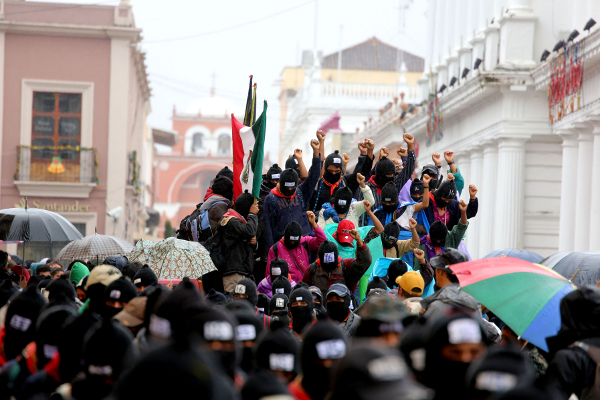So no apocalypse. Or as the Zapatistas reminded us, an apocalypse that has happened already in 2008 and continues to play itself out. When Occupy was all about the GA and direct democracy, the media harped on about demands. Now the movement has articulated some sharp critiques around debt, climate and disaster, notice the silence over democracy.The “democracy” we have is no longer defensible. The alternative is uncertain.
It is by now self-evident that representative democracy cannot contain or direct the crises of this curious time with no name. The media mistake the decline of the traditional left and the lunacy of the neoliberal right as a desire for centrism. But the center has collapsed most thoroughly of all.
Nowhere is this clearer than over the so-called debt debate. US Federal debt is not an issue. It’s easy to sell and offers almost non-existent interest. But the political class has talked up a grand showdown in order to be able to sell a further round of cuts in benefits and paid-for entitlements. Notice how Obama immediately gave up his only two clear election promises: to raise taxes on those making more than $250,000 and not to cut social security. So what will happen is a mealy-mouthed combination of marginal tax increases for the immensely wealthy, which their accountants will negotiate with ease, and two years more work for the rest of us. At this point the Congress will be exhausted and nothing else of note will happen until the next “most important election of your life.”
What does trouble me is the corollary collapse of the traditional left. It is as if without a point of reference against which they can call themselves “the left,” the whole project falls apart. In Spain, for example, movement activists referred to the unions as dinosaurs and would not even speak about the Socialist Party that introduced austerity. When I mentioned actions like the miners march from the Asturias, the come-back was immediate: what did they accomplish? Ironically, the movement is using the establishment critique of 2011 against itself. In France and the UK, I would hear very familiar calls for “socialism,” for Trotskyism or a popular front but without conviction and less chance of actual success.
This sense of frustration has led to extensive and continuing attacks on everything that isn’t canonically Left or Marxist or Trotskyist depending on the persuasion of individual groups or individuals. Much of this has been directed at Occupy, Strike Debt and the Rolling Jubilee. I don’t think that we’re beyond criticism, far from it. Movement de-briefs after actions or events can often be scathing.
But what are the continuing efforts to claim that the Rolling Jubilee will create unthought of tax liabilities, despite the well-publicized involvement of lawyers and accountants who say otherwise, supposed to achieve? The left critics have never contacted the movement directly, as it would be easy for them to do, let alone make a pre-publication intervention. This isn’t about correcting a mistake. It’s about sectarianism: the idea being that the success of the “left” relies on unorthodox elements being successfully purged or squashed. The fact that there is no “left” to speak of in the US does not mitigate the force of the true believers desire to purify.
The real questions nonetheless remain. After the passing of the General Assembly model, how would a movement work beyond the local scale? Strike Debt has several sister groups but there is no consensus as to whether these are affiliates, chapters of a union, or autonomous bodies agreeing to work together. While we delegate and allow for people to take on different roles, this practice is based on trust among known comrades and is not a model.
Even the Zapatistas had nothing to say on their powerful demonstration, nineteen years after their first appearance under the slogan ¡Ya Basta! There has been no apocalypse but there is clearly something that is either a collapse or a paralysis of the mechanisms of representative democracy that are used to validate neoliberalism. Far from being an emergency for the post-left alternative, this situation gives us a renewed opportunity. In the park, time was always of the essence–proposals and actions had to be decided immediately. As winter begins, we find the post-apocalypse post-democracy opens the chance to engage with new possibilities at a more reasonable tempo. Like not posting every single day;)

